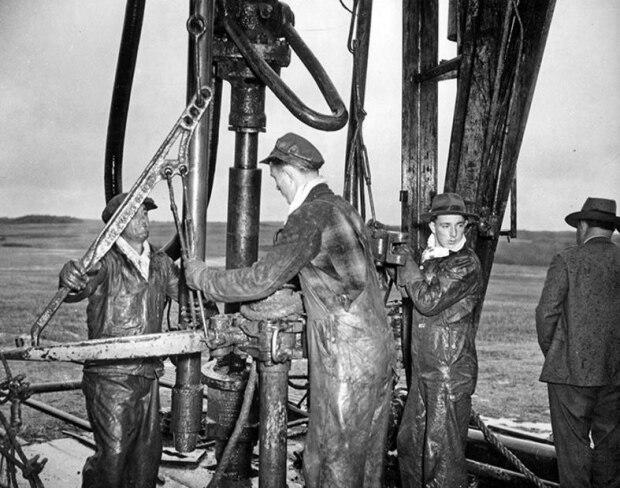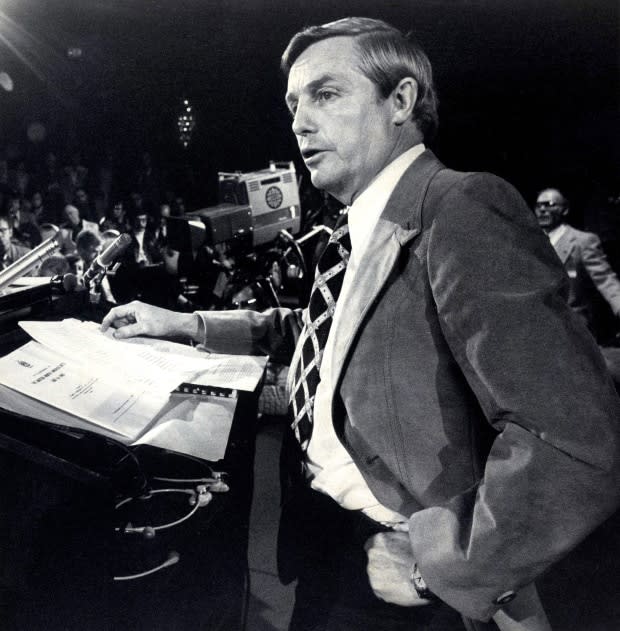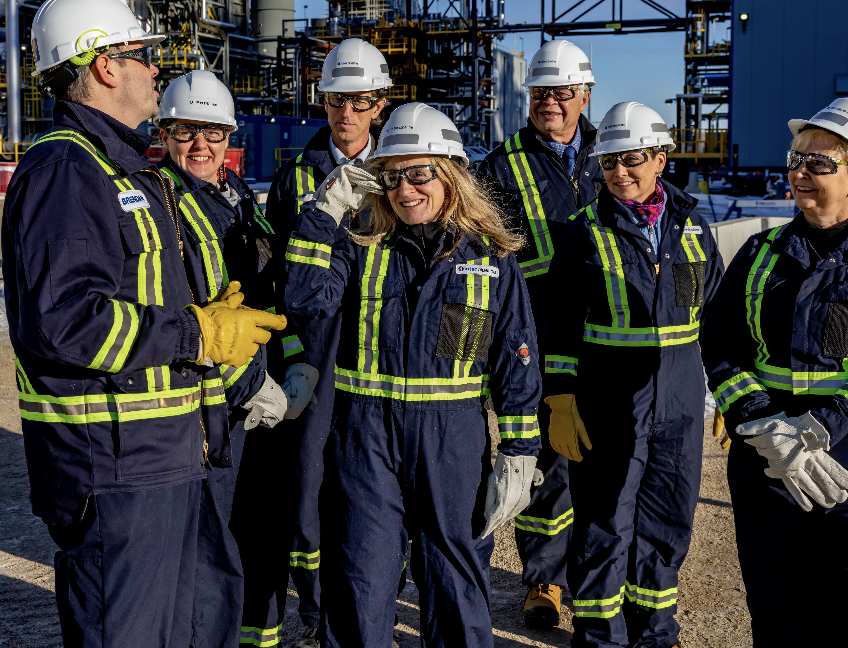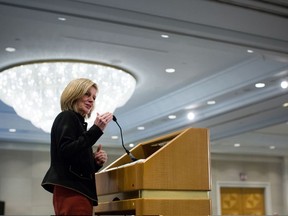OPINION | On COVID-19, what would Lougheed have do
CBC Thu., December 10, 2020,
This column is an opinion from political scientist Duane Bratt, of Mount Royal University.
Preston Manning recently compared how Albertans responded to the Great Depression and World War II with our response to COVID-19. Ken Boessenkool wondered how premier Ralph Klein would have responded to the coronavirus pandemic.
While these comparisons are insightful, so far nobody has asked what premier Peter Lougheed would do if it were his government that was confronted with the health and economic challenges of COVID-19.
Lougheed remains Alberta's most revered former premier, so it is important to speculate about how he would have responded. These historical comparisons may be a "what if" game, but they also provide important insights into how different political leadership approaches respond to crises.
It is a way to apply counterfactual analysis to policy decisions. For example, comparing former Premier Alison Redford's response to the Calgary/High River flood in 2013 with Premier Rachel Notley's response to the 2016 Fort McMurray fire.
Lougheed would have handled it better
I argue that Lougheed, because of a combination of his individual qualities and the structural conditions of his time in office, would have handled COVID-19 in a much better fashion than Premier Jason Kenney.
For example, I can imagine Lougheed instituting a provincewide mask mandate, utilizing the federal tracing app and, if cases spiked, imposing an economic lockdown (but with financial compensation for business owners and workers to supplement federal programs).
Kenney's approach, as Lisa Young and I previously argued, has been marked by too much emphasis on political and partisan calculations. In contrast, I believe that Lougheed would have responded with a focus on mitigating the disastrous health impact, while at the same time taking steps to protect the economy, business owners and workers.
Lougheed could rely on his strong personal qualities.
Before becoming premier, he had built up a set of accomplishments in a variety of fields: athletics, academics, business and law.
He took over a moribund Progressive Conservative party in 1965 and within two elections was premier of Alberta. He was also highly charismatic and empathetic.
Lougheed, like Kenney, would have emphasized personal responsibility, but his persuasion powers were greater. Albertans, who nicknamed him Saint Peter, would have trusted him more, listened and followed his lead.
And for those not inclined to be influenced, like anti-maskers, Lougheed would have responded more quickly and assertively in condemning their behaviour.
Relationship with health sector better under Lougheed
Lougheed would also have had a better relationship with the Alberta health sector.
Kenney, unlike most other Canadian political leaders, never received a COVID-19 bump, due in large part to the fact his government continued to fight doctors, nurses and support workers in the midst of a health pandemic.
Lougheed greatly increased spending in the health-care sector as premier. Hospitals were built, medical schools expanded and additional doctors and nurses hired with increasing wages.
It is difficult to imagine the sorts of damaging leaks and rumours of a strained relationship with Dr. Deena Hinshaw, the chief medical officer of health, and Alberta Health Services occurring in a Lougheed government.
It's likely that Lougheed would be more receptive to the advice of medical professionals; although, like Kenney, he wouldn't allow them to dictate policy.
I would also anticipate more co-operation with the Trudeau government.
Lougheed was certainly not afraid to confront former prime minister Pierre Trudeau, as he did with the National Energy Program and the initial negotiations around the repatriation of the Constitution. He set a template for Kenney's fight with Justin Trudeau over energy policy and equalization.

However, Lougheed, to a much stronger degree than Kenney, also knew when it was time to co-operate. Lougheed-Trudeau reached an accord on the NEP, and Lougheed eventually signed on to the 1982 Constitution.
To be fair, there have been moments, especially in spring 2020, when Kenney dialled down the anti-Trudeau rhetoric. The Kenney government is also working with the Trudeau government on vaccine rollout and field hospitals.
Unfortunately, the personal animus that Kenney and some members of his government feel toward Justin Trudeau periodically reappears — for instance, when members of his cabinet derisively referred to the federal COVID-19 tracing app as the "Trudeau app."
Structural factors benefit Lougheed
To be sure, Lougheed benefited from structural factors that gave him greater freedom of movement than the Kenney government.
One of the reasons that Kenney's approach has been so partisan is that Alberta is now a competitive two-party system. Kenney needs to worry about the NDP in the 2023 election.
We are also only a few years removed from the PC-Wildrose battles that contributed to the NDP's surprising election victory in 2015. Therefore, Kenney needs to be concerned about splinter movements on his right flank that could allow another NDP victory.
In contrast, Lougheed essentially vanquished Social Credit in the 1971 election (although remnants of the farther right would continue to exist throughout most of Lougheed's tenure).
Following his 1971 election, Lougheed would win over 90 per cent of seats and typically exceed 60 per cent in the popular vote in subsequent elections.
Lougheed, who put just as much emphasis on the "progressive" as the "conservative" in the Progressive Conservative party, was a true centrist. He could afford to respond to COVID-19 with less attention to partisanship than Kenney.
Lougheed also benefited from a strong economy throughout his time in office.
The oil shocks of the early 1970s flooded money into the provincial treasury. Even in the immediate aftermath of the NEP, Alberta was generating budget surpluses and could set some money aside in the Heritage Savings Fund.
Financial situation much worse today
In contrast, when Kenney was elected in 2019, he inherited a budget deficit of over $6 billion and $60 billion in accumulated debt.
Because of COVID, Alberta is now projecting a $21-billion deficit and almost $100 billion in debt.
While Alberta is still in a relatively strong fiscal position compared with other provinces, it is in a substantially worse position than at any time in the Lougheed years.
Thus, while Lougheed would have been able to provide stronger economic support programs for businesses and workers if he brought in more restrictive lockdown measures, Kenney has to be much more sensitive regarding the economic effects of his COVID-19 response because of the continuous downturn in Alberta's economy since 2014.
Historical comparisons are a useful exercise to show what other policy pathways could occur.
If Peter Lougheed had been confronted with COVID-19, he would have likely responded with calls for personal responsibility (but with more success because of his higher level of trust among Albertans), co-operation with the federal government, co-operation with the health-care sector and likely more restrictive provisions (but with financial compensation). This is a very different response than what we are currently seeing.
But despite the obvious differences in approach, that doesn't mean Jason Kenney wouldn't benefit, when struggling with policy responses to the COVID crisis, to ask himself, what would Lougheed do?
This column is an opinion. For more information about our commentary section, please readour FAQ.















